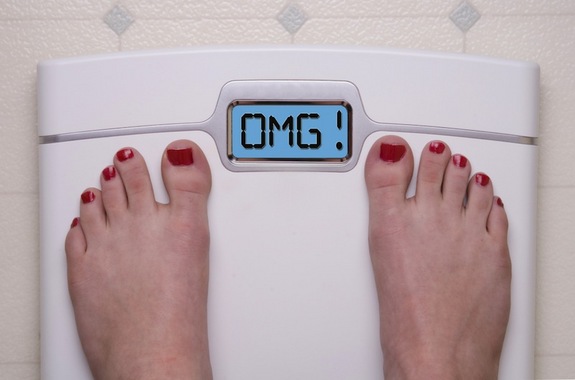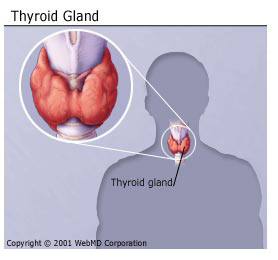Getting your period can cause some conflicting feelings. On one hand it may be “Yay! I’m not pregnant” (that’s if you’ve been having unprotected sex while not ready to have a baby) On the other hand it may be “Ughhh now i have to deal with these cramps and bloating and all other annoying period symptoms”. And for women who are actively trying to get pregnant, seeing that monthly red can be a major disappointment.
However a missed period when babies aren’t on the agenda can be a real freak-out moment, but there are a few other factors that may be to blame.
Now we shall discuss a few reasons for a late period that have nothing to do with a bouncing bundle of joy.

MAJOR WEIGHT CHANGES OR EXCESSIVE EXERCISE
If your BMI rapidly dips below 18 or 19, you may start to miss periods. This isn’t strictly based on BMI, though. Eating disorders like anorexia and bulimia can cause a missed period, but so can training for a marathon or some other major event that requires you to exercise more than usual. This is nature’s way of protecting you from getting pregnant if your body is under such extreme stress. Your body prevents ovulation so you don’t have a lot of estrogen, without estrogen you don’t build a big uterine lining, therefore, no period.
On the other hand, being overweight or gaining a lot in a short amount of time can cause your body to produce too much estrogen. The overload may cause you to go for months without ovulating or cause the endometrial lining to overgrow and become unstable, resulting in heavy, irregular or missed periods. Usually, gaining weight if you’re underweight or losing if you’re overweight should help your periods to return to normal.

STRESS
A big scary event in your life can cause hypothalamic amenorrhea. There is a particular area of the brain, the hypothalamus, where a lot of the hormones for your period are regulated. This hypothalamus is very affected by stress. So if you’re dealing with a big move, death in the family, huge breakup, or any other life event that’s shaking you up, it could be the cause of your late period or missed period.

A THYROID IRREGULARITY
The thyroid gland, located in your neck, regulates your metabolism. It also interacts with many other systems in your body to keep things running as they should. If you’re dealing with any type of thyroid imbalance, whether it’s hypo- or hyperthyroidism, that can have implications for your period.
An overactive thyroid (hyperthyroidism) can cause periods to be lighter and less frequent; additional symptoms include weight loss, rapid heartbeat, increased sweating and trouble sleeping. An underactive thyroid (hypothyroidism) may also cause periods to be less frequent but heavier; it may also cause weight gain, fatigue, dry skin and hair loss. A blood test can help your doctor determine if you have a thyroid disorder.
POLYCYSTIC OVARY SYMPTOM
Polycystic ovarian syndrome (PCOS) is a condition where the female sex hormones are out of balance. It can cause cysts on the ovaries and prevent ovulation from occurring regularly. In addition to missed or irregular periods, PCOS can also cause excess hair growth, acne, weight gain and possibly infertility. Your doctor can do a blood test to check your hormone levels if you think PCOS may be the reason for your menstruation problems. If PCOS is the cause, your doctor can help you come up with a treatment plan to manage the condition.
CHRONIC DISEASES
Think back to the time you should have ovulated. If you were sick, whether with a simple cold or something more serious, the stress could have put your body into a phase where it has to decide which function is most important. So ovulation could have happened later than usual or not at all, meaning your period will also be late or nonexistent. Any chronic disease that’s left untreated or undiagnosed is a stressor to your general system and can result in missed periods.
YOUR BIRTH CONTROL OR OTHER MEDICATIONS
A missed period or late period can actually be a side effect of the measures you take to avoid pregnancy. Some contraceptive pills will cause a lack of menses that isn’t dangerous and is in some cases a welcome side effect. The same goes for methods like hormonal IUDs, implants, or shots. It can also take some time for your period to come back if you’ve stopped birth control, but it will usually resume without issue in a few months.
Emergency contraception, or the “morning after pill,” can also affect when or if you ovulate, so if you’ve taken it recently you may experience a late or skipped period (you may discuss this with your doctor).
Some other medications that can cause you to be irregular are antidepressants, some antipsychotics, corticosteroids and chemotherapy drugs.
PREMATURE MENOPAUSE
When women under 40 have hormones misfiring in a significant way, they can go through premature menopause, also known as premature ovarian failure. Along with a missed period,
signs of it include hot flashes, night sweats, and vaginal dryness. This isn’t very common, so it shouldn’t be the first thing that comes to mind when you miss your period.
Though a missed period can be emotional, try not to jump to conclusions until you find out what’s really going on. A visit to your doctor can help pinpoint the cause, and if you’re not pregnant, then there’s most likely a solution to have you bleeding again.






